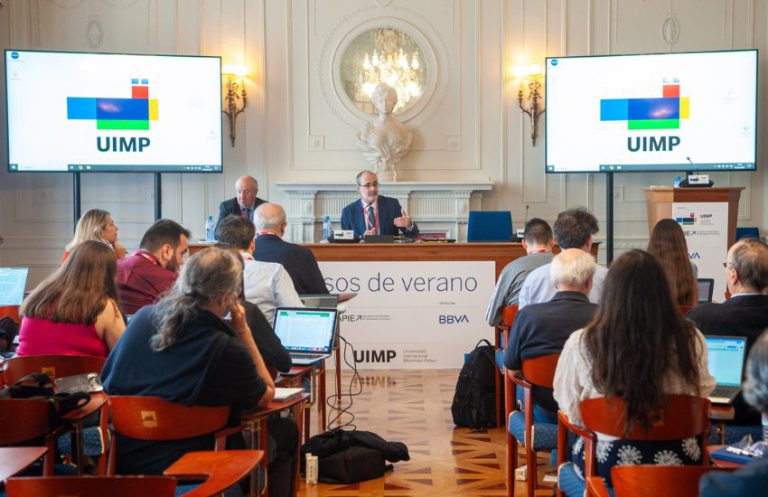Obra Social is the group of charitable and social activities carried out by CECA's member entities. These include social welfare initiatives, but also education, research, cultural promotion and, more recently, environmental protection.
The Obra Social promoted by CECA's member entities (CaixaBank, Kutxabank and Cajasur Banco, Abanca, Unicaja Banco, Ibercaja Banco, Caixa Ontinyent, Colonya Pollença and Cecabank) pursues its activities in various areas, which aim to cover all segments of the population, focusing especially on the most vulnerable groups and those most in need. Over the years, the CECA sector's Obra Social has become a fundamental tool in the fight against inequality, social exclusion and the risk of poverty, illustrating its essential role as the backbone of society.
The CECA sector, the leading private social investor in Spain
As a result of its firm commitment to society, the Obra Social of CECA's member entities once again became the leading private social investor in Spain in 2021, with an investment of more than €778 million. This endowment was used to implement more than 51,000 activities benefiting more than 25 million people. These figures are a reflection of the effective work of the CECA sector's Obra Social, which has once again managed to reach where it is most needed.
Community engagement, especially with vulnerable families and groups, a proven capacity for empathy and collaboration, and the capillarity of the "CECA entities" have played an essential role. In the words of Juan Carlos López, Head of Sustainability, Obra Social and Financial Education at CECA, during the last edition of CECA's Obra Social and Financial Education Awards: "Obra Social continues to play a vital role as an irreplaceable driver of social, cultural and economic development, especially for the most vulnerable groups".
The CECA sector's Obra Social also complements government programmes, making Obra Social one of the main agents in promoting social inclusion at the present time. Such is its importance that the President of the Spanish Economic and Social Council, Antón Costas, stressed at the opening of CECA's last Foundations and Obra Social Committee, held in March 2022, that: "CECA's Obra Social is the second pillar of the welfare state in Spain. An essential pillar for the promotion and support of civil society initiatives in favour of the most vulnerable groups in our society".
In view of the above, we can therefore say that, due to its historical trajectory, its economic contribution and the differential value of its welfare work, the Obra Social work undertaken by CECA's member entities plays an essential role in our society, contributing in a tangible way to its structuring and cohesion. And although today, with the surge in Corporate Social Responsibility (CSR), voluntary business initiatives to contribute to social improvement are widespread, this work is not yet comparable, either in its scope or its impact, to that carried out by Obra Social. However, it is to be expected that the social actions of the private sector will be strengthened and consolidated over the coming years. Undoubtedly, in this journey, the Obra Social, as a historic pioneer of CSR, can be the benchmark to follow.
"Banking across generations"
CECA has launched a series of videos to retrace the evolution of the banking sector over the last few years through the conversations between Julián and his granddaughter, María. In the last of these videos, special emphasis is placed on the work of the Obra Social of the "CECA entities".
The goal of the initiative "Banking across generations" is to review the services offered by the CECA sector in recent years and to reflect on how it has evolved, adapting to the needs of the different generations. In the latest video, we can see how Obra Social has accompanied families for years, and continues to be very present today through social and welfare programmes; training and education programmes, including financial education, as well as initiatives to support scientific research and R&D; cultural activities and actions for the conservation of heritage; programmes to support economic and local development, to promote employment, to support SMEs and entrepreneurship; promotion of sports, leisure and recreational activities; as well as programmes related to sustainability, the environment and climate change.













